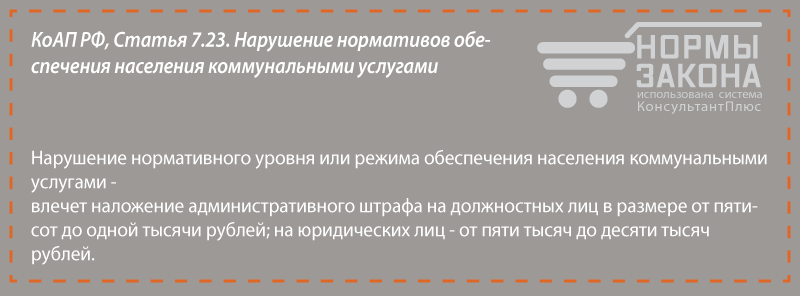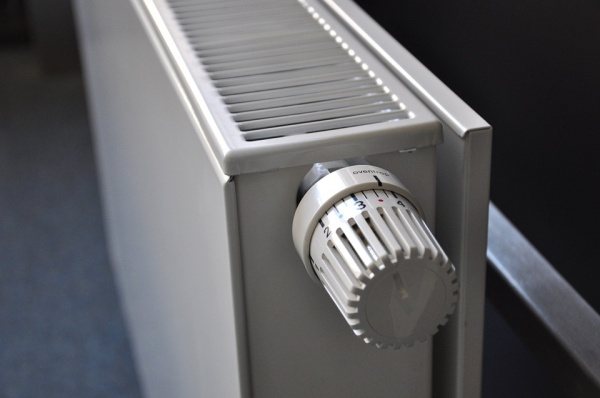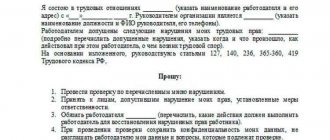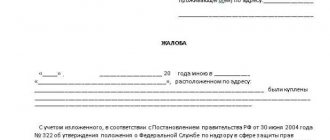Modern man is accustomed to the benefits of civilization, in particular to the fact that water comes out of the tap every day. But a situation may arise when there is a tap, but no water. The hot water was turned off. When will it be turned on? And how long can the water be shut off by law?
The basic regulation governing the relationship between management companies providing service and end clients is the Government Decree “On the provision of utility services to owners and users of premises in apartment buildings and residential buildings” dated May 6, 2011. This Regulation establishes the rules for recalculating payments for poor-quality service.
When there may be no water
The first appendix to the said resolution and SNiP 2.04.02-84, SanPin 2.1.4.2496-09 provide for the circumstances of the legal absence of water:
For cold water, the shutdown standards are:
- Up to eight hours per month (total time);
- Up to four hours at a time (in case of an emergency central network emergency).
For hot water:
- Up to eight hours throughout the month (total);
- Up to four hours at a time;
- 24 hours (in case of an emergency on a dead-end branch);
- You can turn off hot water for 2 weeks during routine inspection and repairs. Such work is carried out once a year in the summer.
To drain water:
- Up to eight hours per month;
- Up to four hours at a time (in case of an accident).

Legal standards
Legislation allows taking a break in the supply of hot water to the population for sufficiently compelling reasons:
- Work is being carried out to eliminate breakdowns in the water supply sector;
- Planned network maintenance work is being carried out;
Information about the work being carried out and its timing must be communicated to the consumer in a legal manner ( at least 10 days before the actual shutdown ). If this does not happen or the water is unavailable longer than stated in the management company’s announcement, you have the right to complain about such circumstances. Of course, if there is an accident in the heating network or equipment breaks down, there may not be a notification 10 days in advance, but the management company is obliged to inform residents about how long the lack of hot water supply will last.
In addition, laws clearly establish the number of days that citizens can spend without hot water supply:
- 4 hours in a row - usually for maintenance or repair work (increased to 24 hours);
- 8 hours per month;
- Two weeks - if the breakdown is serious and utility services cannot make repairs faster.
also complain if the temperature of the supplied water leaves much to be desired . DHW standards established by SanPiN say that hot water, both during the day and at night, can have a temperature from 60 degrees to 75 . Fluctuations depend on the weather and the condition of heating networks, however, lower temperature values recorded by specialists measuring such data are a sufficient reason not to pay for low-quality service.
Should they warn?
In the event of a planned shutdown of hot and cold water, residents of the house should know in advance. Vodokanal employees can block access to water if:
- Arrears of payment for services provided for six months. You can prevent such a disconnection by drawing up an agreement with the water utility on the phased payment of debt. But the debt must be repaid strictly according to schedule, otherwise the organization has the right to stop supplying water. This rule applies exclusively to hot water supply. Blocking access to cold water supply is prohibited by Government Decree No. 307 of May 23, 2006 “On the procedure for providing public services to citizens”;
- Willful connection to an internal pipeline;
- Availability of instructions from government institutions or local authorities;
- Emergency condition of internal water systems due to the fault of the home owner.
If pipes “leak,” the water is urgently turned off throughout the entire “riser” to prevent flooding of other residents of the high-rise building. This is an exceptional situation. If water supply is interrupted for other reasons, residents must learn about the date of disconnection, its period and reasons from the management company thirty days in advance.
A water utility can stop supplying cold water without warning only under two conditions:
- Threat of damage to communications or system breakdown;
- Emergency situation.

Hot water supply: concept and requirements
The absence of hot water for several hours or a whole day in the summer has long become the norm in new and old high-rise buildings. Many people take for granted the absence of water for more than 14 days or lukewarm water from a hot tap.
According to the standards, hot water supply provides the client with uninterrupted access to hot water supplied through a centralized pipeline, of established quality and in the appropriate volume, all day long
Government Decree No. 354, regulating the activities of public utilities, sets clear requirements for the quality of service:
- Twenty-four hour water supply throughout the year;
- Deviation from temperature norms at night (24.00-5.00) up to five degrees, during the day (5.00-24.00) up to three degrees;
- Supply of water whose quality complies with SanPiN;
- Providing water supply under pressure established by SNIP.
Who can help
Faced with the fact that the tap produces only a hissing sound, a natural question arises: for how long the water was turned off, who is to blame and where to complain. Supervision over the activities of the management company in accordance with Articles 13 and 20 of the Housing Code and paragraph 124 of Order No. 170 is carried out by state institutions and local authorities within the limits of their powers. Therefore, a complaint about the lack of hot water supply can be submitted to:
- District administration;
- Housing and Communal Services Department;
- Housing Inspectorate;
- Rospotrebnadzor;
- Local prosecutor's office.

How to compose correctly
A complaint to any of the above authorities is drawn up according to the general rules for filing citizens’ appeals to public or private organizations:
- It is necessary to indicate from whom and to whom the complaint is being submitted, as well as about the actions of which organization you are complaining about (if you are filing an appeal to state executive authorities);
- Please indicate your contact information, as anonymous complaints will not be considered;
- Provide factual arguments - what violations were identified and to what extent, how long there has been no water, who does not yet receive this service, at what address;
- Refer to laws, contract clauses and inspections of temperature meters;
- Demand legal actions - inspections, compensation of expenses (if you have already paid for water supply, which in fact did not exist), recalculation for days without hot water or an administrative fine;
- List all the documents you can attach;
- List all other authorities where the same appeal will be sent.
Sample complaint about lack of hot water.doc
Your complaint should be free of hysterics, strong and swear words, emotions or threats . Otherwise you will be refused.
Who is responsible for poor quality services?
Before talking about the responsibility of officials, it is worth figuring out whether the water could have been turned off legally (perhaps there was an announcement, but you just didn’t notice it) and for how long.
If, after considering the application, it is determined that the water was turned off illegally or the period of non-provision of services has been exceeded, then you will have to answer:
- Management company servicing apartment buildings. It is she who is responsible for organizing public services for the high-rise building. If the company refers to debt, then such “evasion” is illegal. The procedure for providing communal services prohibits disconnecting a client who has fulfilled his obligations from the water supply. That is, if two or three apartments do not pay, you cannot turn off the water to the entire high-rise building;
- If the residents of an apartment building have created a cooperative or an Owners Association, then the governing bodies are responsible for water supply. Utility companies refer to the debt of the HOA as the subscriber with whom the agreement has been drawn up. However, the Resolution of the Presidium of the Supreme Court of the Russian Federation dated 03/07/2007 interprets the HOA as an intermediary, and not an end user. Therefore, the above-mentioned Procedure applies, according to which bona fide clients cannot be disconnected from services;
- When signing an agreement with a service company directly (Article 164 of the Housing Code), the culprit will be the company with which the agreement was signed.
So, what to do if hot water is turned off illegally:
- File a complaint;
- Make a recalculation for unused service;
- Demand that the culprit pay a fine (penalty) and compensation for losses incurred as a result of providing poor-quality service.
In addition, an administrative penalty may be imposed on the culprit under Article 7.23 of the Code of Administrative Offenses of Russia.

Where: Housing Control and Construction Supervision Service of the Krasnoyarsk Territory 660049, Krasnoyarsk, st. P. Communy, 33
From Last Name First Name Patronymic 66ХХХХ, Krasnoyarsk, st. Street, XX, apt. XX tel. (XXX) XXX-XX-XX E-mail: your [email protected] your-email
STATEMENT about violation of standards for providing the population with public utilities
At the address Krasnoyarsk Territory, Krasnoyarsk, st. Street, house XX for _______________ days there is no cold water. Thus, the manager violates the Rules for the provision of utility services to owners and users of premises in apartment buildings and residential buildings (approved by Decree of the Government of the Russian Federation of November 6, 2011 No. 354) - hereinafter referred to as the Rules.
In accordance with paragraphs. In clause 3 of the Rules, utility services are provided to the consumer around the clock, that is, uninterruptedly or with interruptions not exceeding the duration that meets the requirements for the quality of utility services.
In accordance with Appendix 1 of the Rules, the permissible duration of a break in cold water supply: 8 hours (total) for 1 month; 4 hours at a time, in case of an accident in centralized cold water supply networks in accordance with the requirements of the Russian Federation on technical regulation (SNiP 2.04.02-84).
In accordance with paragraphs. In clause 31 of the Rules, the person providing utility services to the consumer is obliged, independently or with the involvement of other persons, to carry out maintenance of the intra-house systems through which utility services are provided to the consumer.
In accordance with paragraphs. G. 31 of the Rules, the person providing utility services to the consumer is obliged, in accordance with the procedure established by the Rules, to recalculate the amount of payment for utility services, including in connection with the provision of utility services of inadequate quality.
In accordance with Art. 154 of the Housing Code of the Russian Federation, payment for residential premises also includes payment for utilities.
In accordance with paragraphs. And clause 149 of the Rules, the person providing utility services to the consumer for violation of the quality of provision of utility services to the consumer bears administrative, criminal, and civil liability established by the legislation of the Russian Federation.
In accordance with Art. 2 of the Regulations on State Housing Supervision (approved by Decree of the Government of the Russian Federation of June 11, 2013 No. 493), the tasks of state housing supervision are, among other things, the prevention, identification and suppression of violations by legal entities and individual entrepreneurs of the requirements established in accordance with housing legislation for the provision of utility services to owners and users of premises in apartment buildings and residential buildings.
Based on the above and guided by the Federal Law of 02.05.2006 No. 59-FZ “On the procedure for considering appeals from citizens of the Russian Federation”, as well as the Regulations on state housing supervision, I ask:
- conduct an on-site inspection based on the facts I have stated;
- issue an order to the management organization LLC “Management Company” to eliminate confirmed violations and set deadlines for its execution;
- initiate administrative proceedings and bring to justice the perpetrators under Article 7.23 of the Code of Administrative Offenses of the Russian Federation “Violation of standards for providing the population with public utilities.”
Full Name
XX.XX.201X
Sample complaint about lack of hot water supply:
Head of the Housing and Communal Services Department of Samara
From Nikolai Pavlovich Petrushov, 1972
the year of birth,
residence Samara, Baltiyskaya street, building 5, kV.143,
phone XXXXXXXXXXX
COMPLAINT
As the owner of apartment No. 143 on Baltiyskaya Street in the city of Samara, I entered into an agreement with the manager regarding the maintenance of the apartment building and the provision of communal services. I make all payments under the contract on time, however, the management company “Our House”, in violation of the provisions of Article 4 of the federal law “On the Protection of Consumer Rights,” does not fulfill the terms of the contract, namely, since July 3, 2020, I have no hot water.
There were no announcements about maintenance work. After contacting a representative of the management company, I learned that the water was turned off due to a broken pipe. They promised to complete the restoration work in two days. However, water did not appear on time as promised. When contacting again, the engineer of the management company Fedorchuk V.M. explained that a complete replacement of the pipe was required.
Based on the provisions of the Rules for the provision of utility services to citizens No. 307, the Rules for the maintenance of common property of the MKD No. 491, Articles 2 and 162 of the Housing Code of the Russian Federation, such restoration work must be carried out by the management company within a month.
However, as of August 5, 2020, there is still no hot water. In response to questions from residents, representatives of the management company “Our House” answer that they are temporarily unable to purchase a pipe, since the supplier is raising prices.
Based on the stated facts and current legislation, I ask for your assistance in carrying out restoration work, recalculating payments for hot water, as well as compensation for moral damage in the amount of 5,000 (five thousand) rubles from the Management Company “Our House”.
Date Signature.
By candlelight and in a fur coat
If you have problems with heating, electricity or water supply, do not rush to immediately pick up the phone. First, go and investigate your neighbors to find out the scale of the problem: whether the emergency happened only in your area or in the whole house. Perhaps the plugs in the apartment were simply knocked out or air had formed in the radiators.
The next step is to call the house management company or contact the chairman of the HOA. Typically, management company telephone numbers are posted at the entrance on information boards at the entrance. Experts have indicated the contacts of housing and communal services on the Housing Committee portal, and here is a list of the city’s emergency services.

Housing agencies of the Admiralteysky district: 315-90-47 Vasileostrovsky: 323-20-38, Vyborgsky: 550-29-62, Kalininsky: 542-26-18, Kirovsky: 252-25-64, Krasnogvardeysky: 227-46-64, Krasnoselsky: 736-72-86, Moscow: 388-13-60, Nevsky: 412-33-37, Petrogradsky: 232-16-65, Primorsky: 301-31-38, Frunzensky: 766-65-41, Central: 273-15-82, Kolpinsky: 461-78-51, Kronstadt: 435-33-96, Resort: 437-07-74, Petrodvortsovoy: 450-54-97, Pushkinsky: 476-72-11.
Citywide hotline for housing and communal services problems: 004 (from a landline phone), 112 (from a mobile phone), 576-24-25 and 576-24-28. In the event of a shutdown of heat and hot water, employees of the St. Petersburg Heating Network can help: 901-46-46 and the St. Petersburg Fuel and Energy Complex: 334-30-80. Heat supply in the Admiralteysky, Petrogradsky, Central, as well as in the Kurortny and Petrodvortsovy districts is provided by Petersburgteploenergo: 334-50-60.

If you are left completely without water, call Vodokanal: 305-09-09, you can use the same number to report damage to the cold water supply network on the street. Regarding bursting hot water pipes: 315-13-13. Also, tell the Ministry of Emergency Situations about any damage noticed on the pipeline: 299-99-99.
Employees of the Ministry of Emergency Situations can also help solve the problem with electricity. If you notice broken wires and broken lights on the city streets, then call 312-95-94. All emergency situations with electricity can also be reported to the Energy and Engineering Committee: 576-58-01 and 576-58-99.










